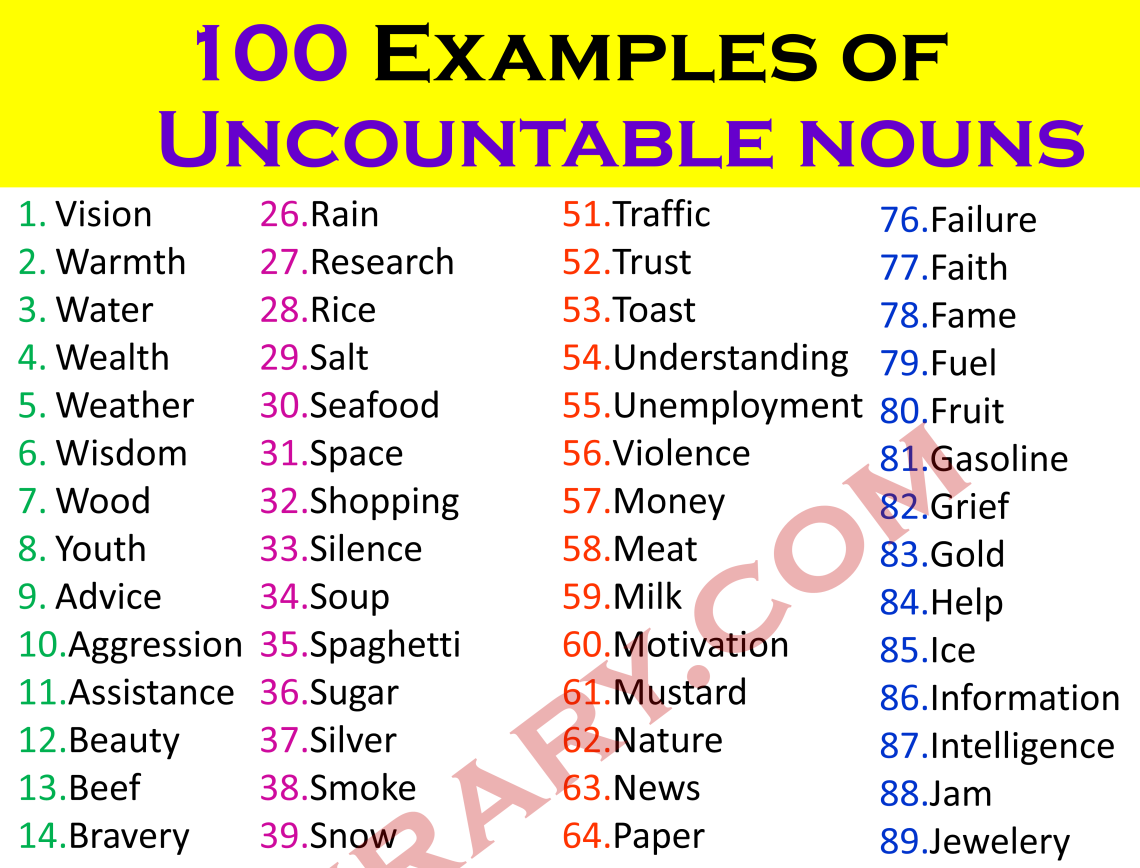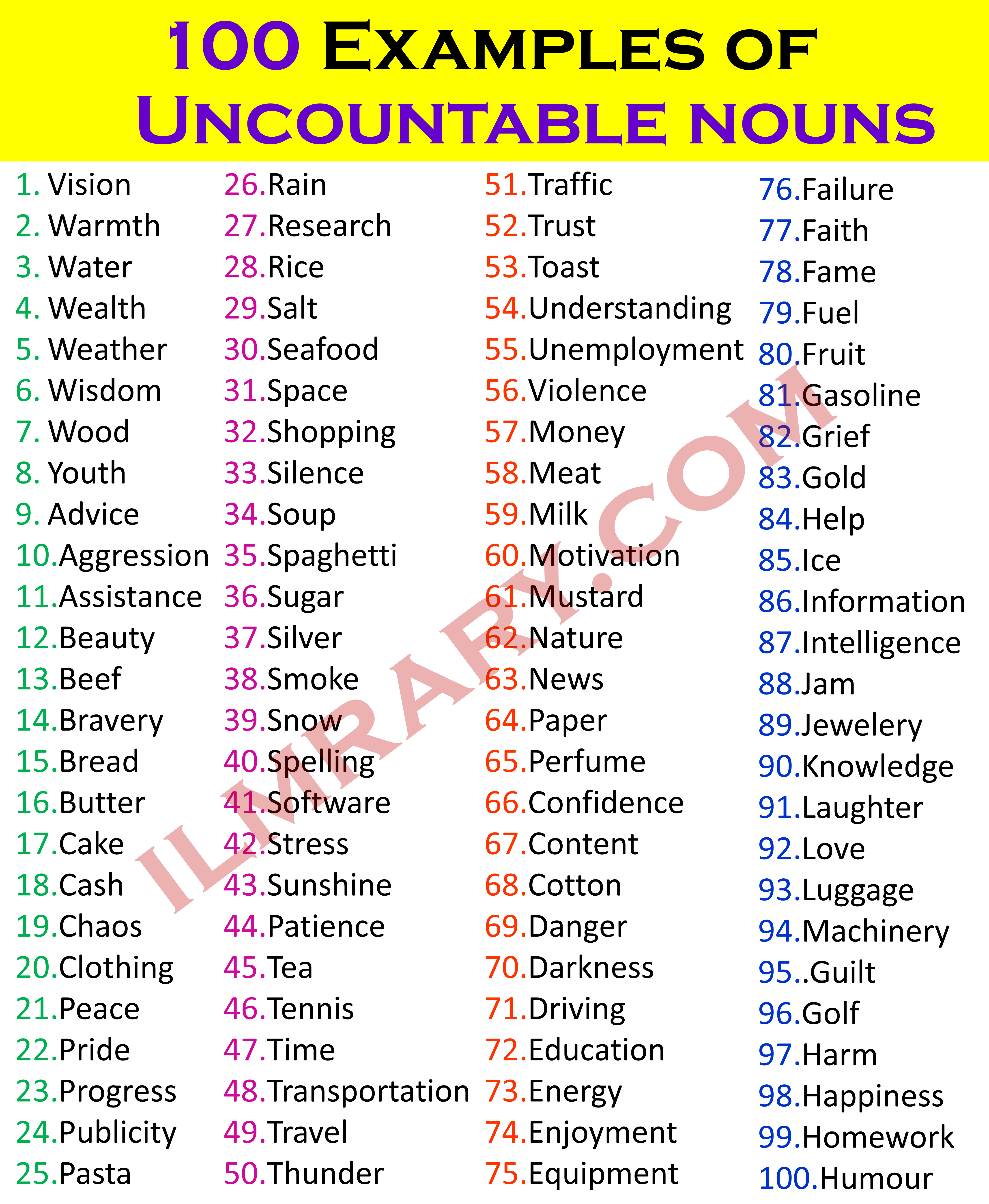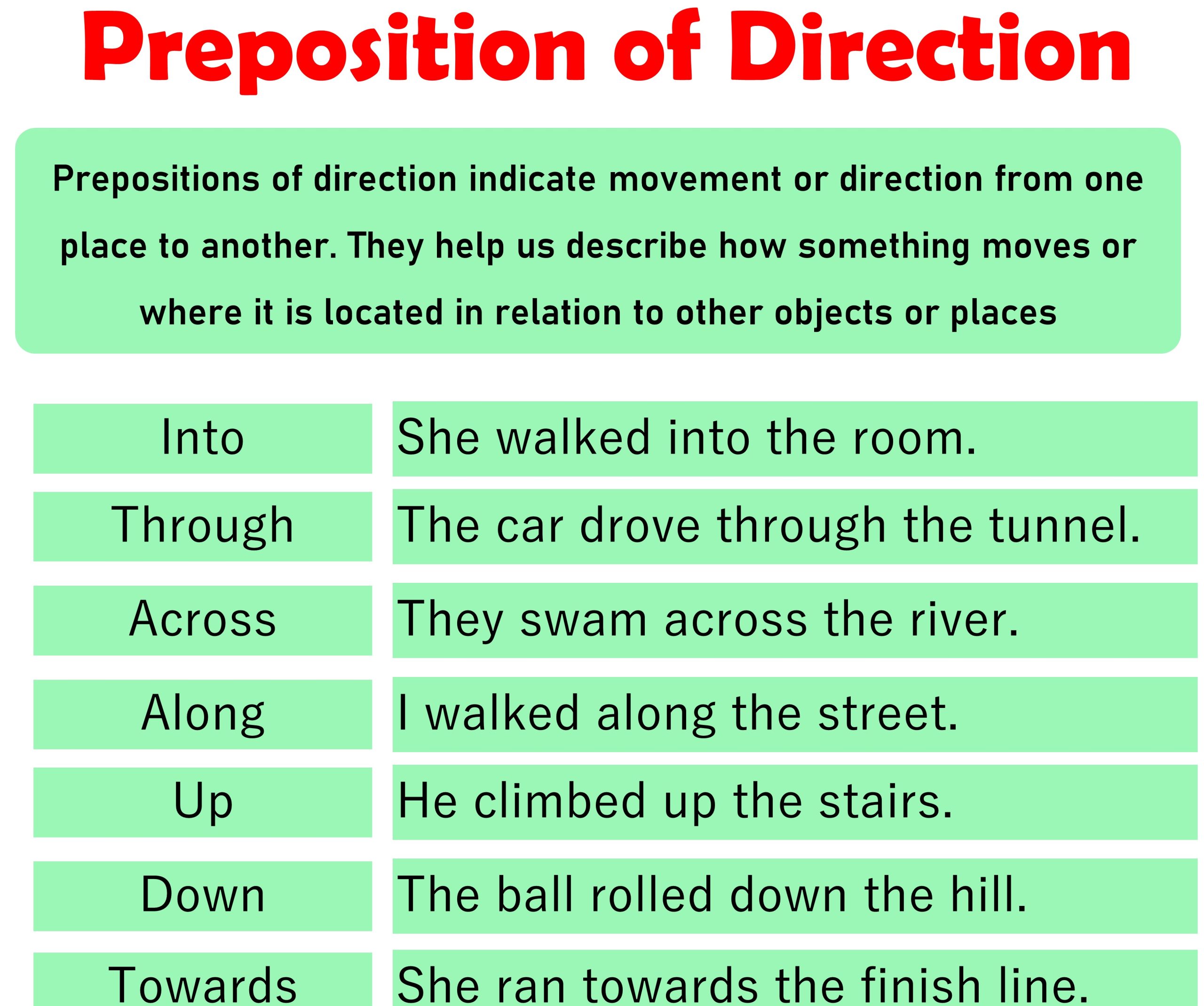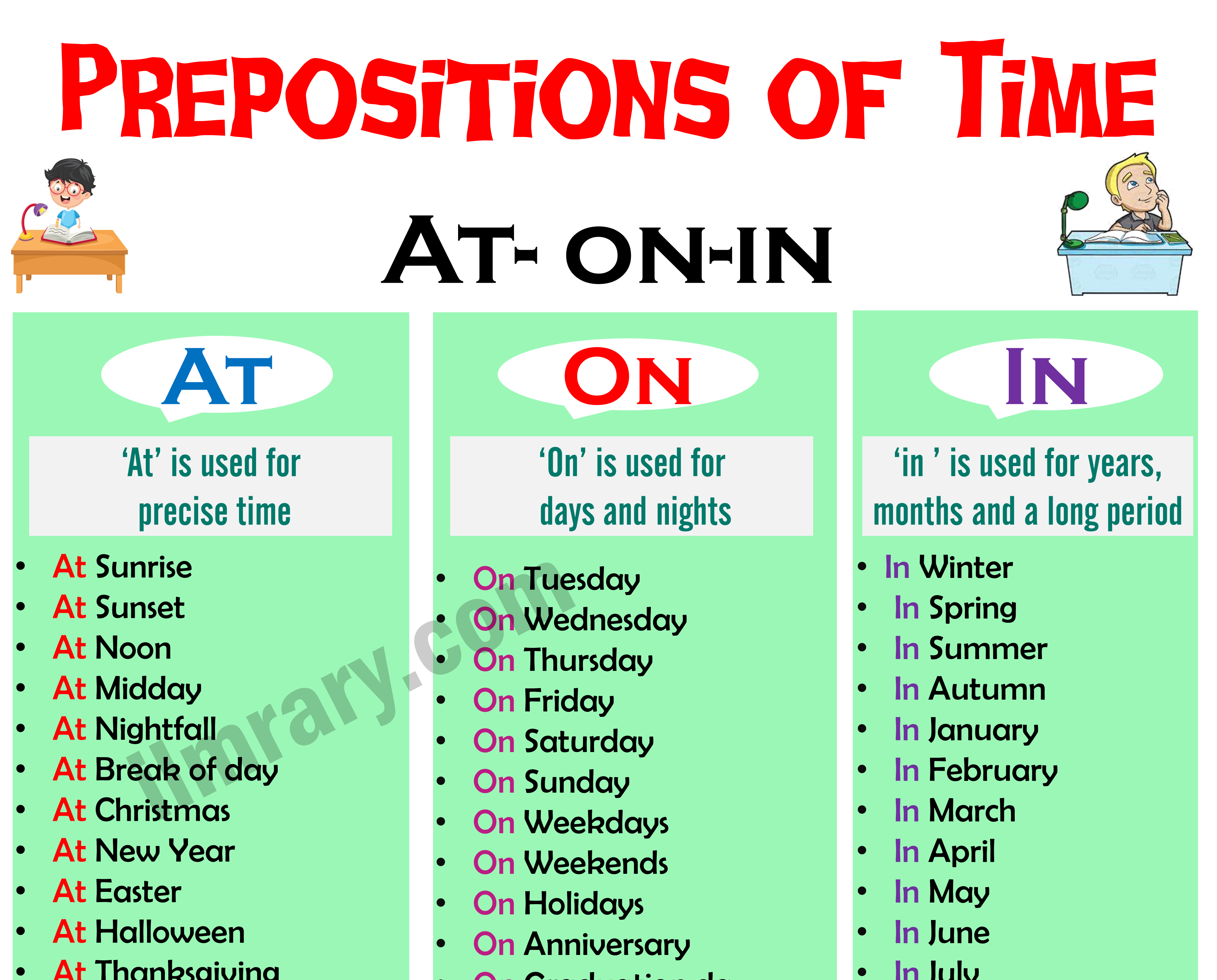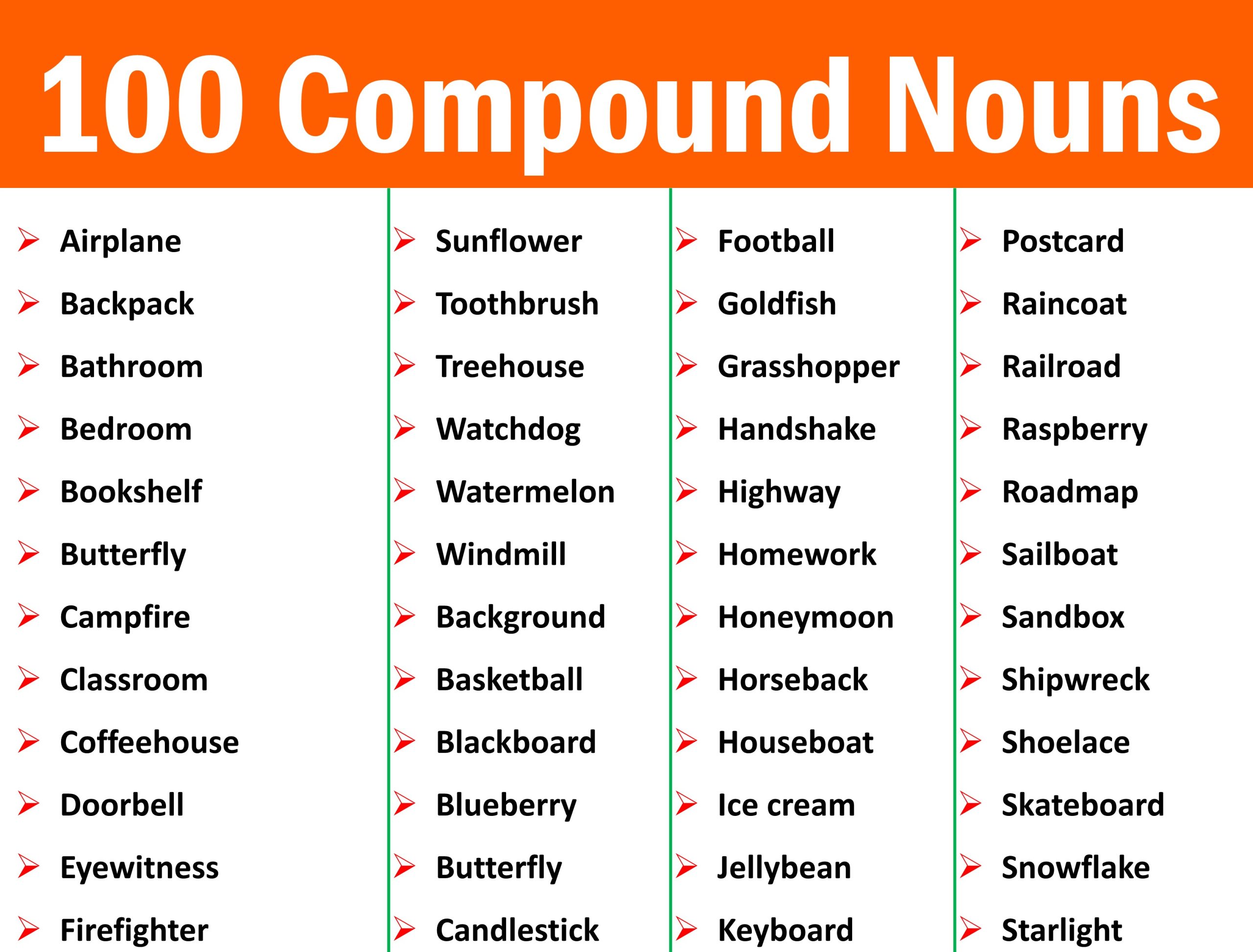In the English language, we often come across nouns that cannot be counted individually. These are known as uncountable nouns, also referred to as mass nouns or non-count nouns. Understanding how to correctly use uncountable nouns is essential for effective communication. In this blog post, we will delve into the world of uncountable nouns, highlighting their importance and providing useful examples along the way.
What are Uncountable Nouns? Uncountable nouns are objects, substances, or concepts that we cannot count individually. They are considered as a whole or mass, rather than separate units. Uncountable nouns often denote abstract ideas, materials, or qualities. It’s important to note that uncountable nouns do not have a plural form and are usually preceded by singular determiners or quantifiers.
Contents
Examples of Uncountable Nouns:
- Water: Water is a vital resource for all living beings.
- Knowledge: Acquiring knowledge is a lifelong process.
- Happiness: True happiness comes from within.
- Furniture: The living room is furnished with elegant furniture.
- Money: Managing money effectively is crucial for financial stability.
Using Uncountable Nouns in Sentences: When using uncountable nouns in sentences, it is essential to follow proper grammar rules. Here are a few tips to keep in mind:
- Singular Verbs: Uncountable nouns are singular, so they should be used with singular verbs. For example:
- Correct: “The information is accurate.”
- Incorrect: “The information are accurate.”
- Singular Determiners: Uncountable nouns should be preceded by singular determiners such as “a,” “an,” or “the.” For example:
- Correct: “I need a cup of coffee.”
- Incorrect: “I need cups of coffee.”
- Use Quantifiers: When referring to the quantity of uncountable nouns, we use quantifiers like “some,” “a lot of,” “much,” or “little.” For example:
- Correct: “There is some sugar in the bowl.”
- Incorrect: “There are some sugars in the bowl.”
- Avoid Pluralization: Uncountable nouns do not have a plural form. Avoid adding an “s” or “es” to uncountable nouns. For example:
- Correct: “She has enough patience.”
- Incorrect: “She has enough patience’s.”
100 Uncountable Nouns List
- Vision
- Warmth
- Water
- Wealth
- Weather
- Wisdom
- Wood
- Youth
- Advice
- Aggression
- Assistance
- Beauty
- Beef
- Bravery
- Bread
- Butter
- Cake
- Cash
- Chaos
- Clothing
- Peace
- Pride
- Progress
- Publicity
- Pasta
- Rain
- Research
- Rice
- Salt
- Seafood
- Space
- Shopping
- Silence
- Soup
- Spaghetti
- Sugar
- Silver
- Smoke
- Snow
- Spelling
- Software
- Stress
- Sunshine
- Patience
- Tea
- Tennis
- Time
- Transportation
- Travel
- Thunder
- Traffic
- Trust
- Toast
- Understanding
- Unemployment
- Violence
- Money
- Meat
- Milk
- Motivation
- Mustand
- Nature
- News
- Paper
- Perfume
- Confidence
- Content
- Cotton
- Danger
- Darkness
- Driving
- Education
- Energy
- Enjoyment
- Equipment
- Failure
- Faith
- Fame
- Fuel
- Fruit
- Gasoline
- Grief
- Gold
- Help
- Ice
- Information
- Intelligence
- Jam
- Jewelry
- Knowledge
- Laughter
- Love
- Luggage
- Machinery
- .Guilt
- Golf
- Harm
- Happiness
- Homework
- Humour


